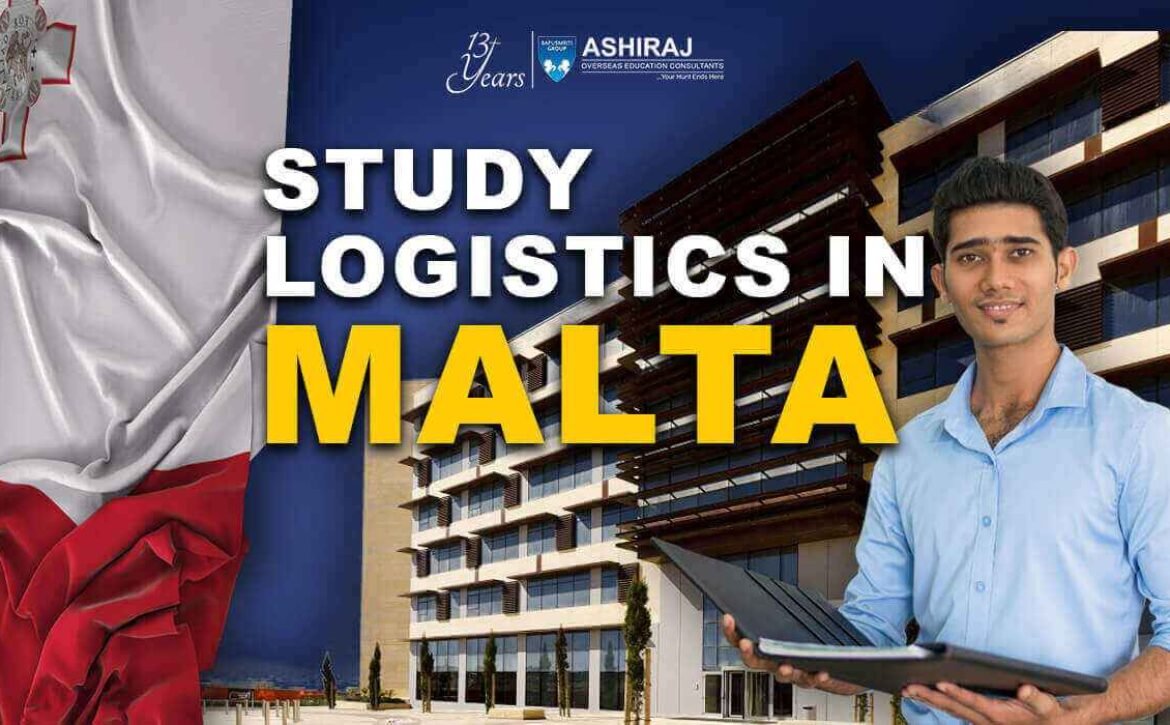
Logistics in Malta
Logistics in Malta plays a pivotal role in the country’s economic landscape, seamlessly connecting its diverse industries and facilitating international trade. Situated at the crossroads of the Mediterranean, Malta’s strategic location positions it as a key hub for logistics and transportation activities. The efficient movement of goods is vital for Malta’s import and export activities, making logistics a critical component of the nation’s economic infrastructure. From the bustling port operations to the well-connected road and air networks, logistics in Malta encompasses a comprehensive system that ensures the smooth flow of products within and beyond its borders.
Logistics in Malta is characterized by a dynamic blend of modern infrastructure and strategic partnerships, reflecting the nation’s commitment to facilitating global trade. The keyword Logistics in MALTA encapsulates the essence of this interconnected network, showcasing Malta’s dedication to optimizing the movement of goods and fostering a business-friendly environment. As a central player in the Mediterranean logistics landscape, Malta’s efficient and reliable logistical framework positions it as a key player in the international supply chain, contributing significantly to the country’s economic growth and competitiveness.
Why to Study Logistics in Malta?
Malta, strategically located at the crossroads of the Mediterranean, offers a unique and compelling environment for students pursuing studies in logistics.
- Strategic Location: Malta’s geographic location places it at the heart of key shipping routes, providing students with a front-row seat to observe and engage with the practical aspects of global logistics.
- International Trade Hub: With a robust logistics infrastructure, Malta serves as a crucial link in international trade. Studying logistics here provides students with hands-on experience and insights into the complexities of managing the flow of goods on a global scale.
- Modern Facilities: Malta boasts state-of-the-art ports, efficient road networks, and well-connected air transportation, offering students the opportunity to understand and work with cutting-edge logistics technologies and practices.
- Industry Collaboration: The logistics sector in Malta actively collaborates with educational institutions, providing students with internship opportunities and real-world projects. This exposure ensures that students are well-prepared for the demands of the industry.
- Diverse Career Paths: Studying logistics in Malta opens doors to diverse career paths, from supply chain management to maritime logistics, catering to the evolving needs of the global business landscape.
By choosing to study logistics in Malta, students not only gain a comprehensive education but also immerse themselves in a living laboratory where theoretical knowledge meets practical application. The keyword Logistics in MALTA underscores the country’s unique position in the global logistics arena, making it an ideal destination for aspiring logistics professionals.
Top Universities to Study Logistics in Malta
University | QS World University Ranking 2023 | Type of University | Average Annual Fees | Programs Offered |
University of Malta | 501-550 | Public | €1,500 – €3,500 | Logistics and Supply Chain Management |
Malta College of Arts, Science & Technology (MCAST) | Not Ranked | Public | €1,000 – €2,500 | International Logistics, Transport Management |
American University of Malta | Not Ranked | Private | €7,500 – €15,000 | Logistics and Supply Chain Management |
Global College Malta | Not Ranked | Private | €5,000 – €10,000 | Maritime Logistics, Shipping Management |
Mediterranean Maritime Research and Training Centre (MMRTC) | Not Ranked | Private | €6,000 – €12,000 | Maritime Studies, Port Management |
Studying logistics in Malta is an enriching experience, with several top universities offering specialized programs. The University of Malta, ranking between 501-550 in the QS World University Rankings 2023, is a public institution providing comprehensive courses in Logistics and Supply Chain Management at an affordable annual fee range of €1,500 – €3,500. For a more hands-on approach, the Malta College of Arts, Science & Technology (MCAST), a public institution, offers programs in International Logistics and Transport Management at an average annual fee of €1,000 – €2,500.
Private universities like the American University of Malta, Global College Malta, and the Mediterranean Maritime Research and Training Centre (MMRTC) also contribute to the educational landscape. These institutions offer specialized courses in Logistics and Maritime Management, providing students with a diverse range of options. The keyword Logistics in MALTA emphasizes the focus on logistics education, showcasing Malta’s commitment to nurturing skilled professionals in this field.
Course Curriculum for Logistics in Malta
- Foundational Concepts: The curriculum begins with a solid foundation in logistics principles, introducing students to key concepts such as supply chain management, transportation, and inventory control.
- Global Logistics Trends: Courses delve into contemporary trends shaping the global logistics landscape, ensuring students are well-versed in the latest industry practices and innovations.
- Technology Integration: With a focus on the digital transformation of logistics, the curriculum incorporates modules on technology integration, preparing students for the use of cutting-edge tools and systems.
- Case Studies and Practical Applications: Emphasizing real-world relevance, students engage in case studies and practical applications, bridging the gap between theory and practice in the logistics industry.
- International Perspectives: Given Malta’s strategic location, courses often include an international perspective, exposing students to the challenges and opportunities of managing logistics on a global scale.
The course curriculum of logistics in Malta is designed to provide a comprehensive and practical education, equipping students with the skills needed for success in the dynamic field of logistics. The keyword Logistics in MALTA underscores the program’s focus on Malta’s unique position in the global logistics arena, making it an ideal destination for those seeking a well-rounded education in this critical field.
Eligibility Criteria & Admission Requirements for Logistics in Malta
- IELTS or TOEFL Scores:
Prospective students are required to demonstrate proficiency in English through either the International English Language Testing System (IELTS) or the Test of English as a Foreign Language (TOEFL).
Exam | Minimum Score |
IELTS | 6.5 |
TOEFL | 80 |
- GRE or GMAT Scores:
Some institutions may require additional standardized testing, with options including the Graduate Record Examination (GRE) or the Graduate Management Admission Test (GMAT).
Exam | Minimum Score |
GRE | 300 |
GMAT | 550 |
- Documentation:
A valid passport and student visa are essential for international students. Ensure all documents, including academic certificates and work experience records, are in order before applying.
- Academic Qualifications:
Candidates typically need a bachelor’s degree or its equivalent in a related field for admission. Relevant work experience may be considered in lieu of specific academic qualifications in some cases.
Navigating the eligibility criteria for logistics in Malta requires careful attention to language proficiency, standardized test scores, and proper documentation. The keyword Logistics in MALTA emphasizes the importance of meeting these criteria to access the vibrant educational opportunities in Malta’s logistics sector.
Documents Required for Studying Logistics in Malta
- Passport:
A valid passport is a fundamental requirement for international students applying for logistics programs in Malta. Ensure it has sufficient validity for the duration of your studies.
- Letters of Recommendation (LOR):
Two well-crafted Letters of Recommendation from academic or professional mentors are typically required, providing insights into your capabilities and character.
- Statement of Purpose (SOP):
The SOP outlines your academic and career goals, showcasing your motivation and suitability for the logistics program. It’s a crucial component of the application.
- Curriculum Vitae (CV):
A detailed CV highlighting your educational background, work experience, and any relevant achievements is essential for evaluating your qualifications.
- Official Transcripts and Educational Certificates:
Provide official high school transcripts and certificates as proof of your academic qualifications, demonstrating your readiness for a logistics program.
- Work Experience Certificate:
If applicable, include a work experience certificate detailing your professional background and relevant skills in the logistics field.
- Proof of Financial Resources:
Demonstrating your ability to cover tuition and living expenses is crucial. Provide bank statements or sponsorship letters as proof of your financial resources.
Compiling these documents meticulously ensures a smooth application process for logistics programs in Malta. The keyword Logistics in MALTA emphasizes the significance of these documents in securing educational opportunities in Malta’s thriving logistics sector.
Admission Process for Logistics in Malta
- Research and Choose Institutions:
Begin by researching and selecting institutions in Malta offering logistics programs. Consider factors such as reputation, course offerings, and location.
- Review Eligibility Criteria:
Familiarize yourself with the eligibility criteria, including language proficiency (IELTS or TOEFL) and standardized test scores (GRE or GMAT).
- Prepare Documentation:
Collect essential documents, including a valid passport, Letters of Recommendation (LOR), Statement of Purpose (SOP), Curriculum Vitae (CV), official transcripts, educational certificates, work experience certificates, and proof of financial resources.
- Online Application:
Complete the online application form provided by the chosen institution. Ensure accuracy and completeness, attaching all required documents.
- Language Proficiency Test:
Schedule and take the required language proficiency test (IELTS or TOEFL), and if necessary, the standardized test (GRE or GMAT).
- Submit Application:
Submit your application along with the required documents through the institution’s online portal or as specified in the admission guidelines.
- Wait for Admission Decision:
Patiently await the admission decision. This period may vary, so regularly check your application status or email notifications.
- Acceptance and Visa Process:
Upon acceptance, follow the institution’s guidelines for accepting the offer and initiate the student visa process. Ensure all visa documentation is accurate and complete.
The admission process for logistics programs in Malta is a systematic journey, culminating in the opportunity to immerse yourself in the vibrant logistics education landscape. The keyword Logistics in MALTA underscores the unique educational opportunities available in Malta’s logistics sector.
“Education is the most powerful weapon which you can use to change the world.”
Nelson Mandela
Cost of Logistics Course in Malta
- Tuition Fees:
Logistics programs in Malta have varying tuition fees. On average, public universities may charge around €1,500 – €3,500, while private institutions might range from €5,000 – €15,000 per year.
- Accommodation:
Accommodation costs depend on preferences, ranging from shared apartments to private studios. On average, students may budget €300 – €800 per month for housing.
- Living Expenses:
Monthly living expenses, including groceries, transportation, and other miscellaneous costs, can range from €400 – €600, depending on lifestyle choices.
- Books and Supplies:
Allocate funds for textbooks and study materials, which may cost around €200 – €400 per academic year.
- Health Insurance:
International students are typically required to have health insurance. Budget around €200 – €400 annually for coverage.
- Miscellaneous Costs:
Factor in additional expenses for social activities, personal items, and unforeseen circumstances. A cushion of €100 – €200 per month is advisable.
Understanding and budgeting for these components provides a clear picture of the overall cost of studying logistics in Malta. The keyword Logistics in MALTA highlights the investment in education and living experiences in Malta’s dynamic logistics sector.
Scholarships for Logistics Courses in Malta
Scholarship Name | Eligibility Criteria | Amount | Application Deadline |
Logistics Excellence Scholarship | Academic merit, commitment to logistics, financial need | Up to €5,000 per year | May 15 |
Malta Future Leaders Scholarship | Outstanding leadership qualities, academic excellence | Full tuition fees | March 31 |
International Student Grant | Open to international students pursuing logistics studies | €2,000 – €5,000 | Rolling admissions |
Women in Logistics Scholarship | Female students with a passion for logistics and leadership | Up to €3,000 per year | June 30 |
Merit-Based Award | Exceptional academic achievements in logistics | Variable | August 15 |
For students aspiring to pursue logistics studies in Malta, various scholarships provide financial support. The Logistics Excellence Scholarship, emphasizing academic merit and commitment to logistics, offers up to €5,000 per year with an application deadline on May 15. The Malta Future Leaders Scholarship, recognizing outstanding leadership qualities, covers full tuition fees and closes applications on March 31. International students can explore the International Student Grant, offering €2,000 – €5,000, with rolling admissions. The Women in Logistics Scholarship, supporting female students, provides up to €3,000 per year, and the Merit-Based Award, based on exceptional academic achievements, offers a variable amount with an application deadline on August 15. These scholarships not only ease the financial burden but also underscore the commitment to nurturing talent in Malta’s dynamic logistics sector. The keyword Logistics in MALTA emphasizes the focus on scholarships tailored for the logistics education landscape in Malta.
Career Opportunities After Logistics in Malta
Job Profile | Career Opportunities After Logistics in Malta | Average Salary |
Supply Chain Manager | Overseeing end-to-end supply chain processes | €35,000 – €50,000 per year |
Logistics Coordinator | Coordinating transportation and logistics operations | €25,000 – €35,000 per year |
Customs Broker | Managing customs clearance and compliance | €30,000 – €45,000 per year |
Warehouse Manager | Ensuring efficient warehouse operations | €30,000 – €40,000 per year |
Freight Forwarding Specialist | Facilitating international shipping logistics | €28,000 – €38,000 per year |
Embarking on a logistics education journey in Malta opens doors to diverse career opportunities in the dynamic field. Graduates can pursue roles such as Supply Chain Manager, responsible for overseeing end-to-end processes with an average salary ranging from €35,000 to €50,000 per year. Logistics Coordinators, managing transportation operations, can expect salaries between €25,000 and €35,000 per year. Customs Brokers, handling customs clearance, enjoy salaries ranging from €30,000 to €45,000 annually. Warehouse Managers, ensuring efficient operations, earn between €30,000 and €40,000 per year. For those interested in international shipping logistics, Freight Forwarding Specialists can anticipate salaries in the range of €28,000 to €38,000 per year. These lucrative career paths, coupled with Malta’s strategic location in global trade, make logistics in Malta a promising field with substantial earning potential. The keyword Logistics in MALTA underscores the focus on career opportunities in Malta’s thriving logistics sector.
Frequently Asked Questions About Logistics in Malta
Malta offers a range of logistics programs, including degrees in Supply Chain Management, Maritime Logistics, and International Trade.
Yes, various scholarships like the Logistics Excellence Scholarship and International Student Grant provide financial support to logistics students.
The average cost includes tuition fees (€1,500 – €15,000), accommodation (€300 – €800/month), and living expenses (€400 – €600/month).
Yes, most programs require proof of English proficiency through exams like IELTS or TOEFL.
Graduates can explore roles like Supply Chain Manager, Logistics Coordinator, Customs Broker, Warehouse Manager, and Freight Forwarding Specialist.
International students can apply online, submitting required documents and meeting language proficiency and academic criteria.
Admission deadlines vary, but commonly fall between March and August. Check individual program requirements for accurate information.
Yes, international students are usually allowed to work part-time during their studies. Check visa regulations for specific details.
The duration varies, with bachelor’s programs typically taking 3-4 years and master’s programs lasting 1-2 years.
Once accepted into a program, follow the visa application process, submitting required documents, including an acceptance letter and proof of financial means.




